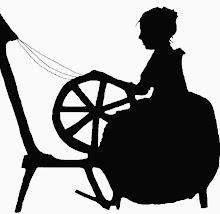I've just re-watched ITV's online highlights of the 1997 referendum result night and a few things struck me. (Warning: Very long and probably boring post. Maybe you should stop reading here!)
Firstly it is important to remember that before the ballot boxes were opened in 1997 everyone assumed that the Yes campaign had won easily. That's what the polls said, that's what the media said and that's what both the Yes and No campaign thought. You won't need my reminder that in truth the result was very close and that until the last two results came in (Gwynedd and Carmarthenshire) the Yes campaign had virtually conceded defeat. This is a lesson that a Yes campaign in a new referendum has to take heed of. While the few polls that we have show support for a Parliament, there is a hell of a lot of work to be done by supporters of devolution if Wales is to say Yes again. Even with every major political party on board the result is far from certain. Back in 1997 only the Tories and a few Labour members supported the No campaign, and this was at a time when the Tories were in tatters remember. One of the leaders of the campaign was a Labour Councillor (Carys something, my memory fails me), not in the least bit well known, not in the least bit charismatic and yet the No campaign came within less than 7,000 votes.
The second question that has to be asked is: Who on earth will run the No campaign this time round? The Electoral Commission gets to decide which No group is to be the "official" one they will be seriously hindered this time round by the fact that there will be no major party to start the campaign. Highlights of the 1997 count gave us Michael Ancram and Nick Bourne (how times have changed!) telling us how bad devolution would be - who will be the criticiser in chief this time round? It seems that the No campaign will have to be lead by Labour Welsh MP's who desperately tried to stop the One Wales Coalition and their Tory counterparts.
Surprisingly perhaps, such a situation may harm the No campaign more than in 1997, when the only MP I remember opposing the plans was Llew Smith (Yes, even Don Touhig was in favour). Back in 1997 there was no AM/MP divide because we didn't have any AM's. How will Welsh voters react to having their MP's on one side and AM's on the other? I can't answer that question but the only guide we currently have is the vote at Labour's Conference when the One Wales Coalition was supported by about 3.5/1 of Labour members, even though the majority of MP's opposed it. While there's no doubt that such a majority would not be repeated in the Tory voters it does show that, at least in Labour, people are more willing to listen to their AM's than MP's (obviously I am generalising here, there will be Labour MP's in support as well).
Another issue that the 1997 result highlighted was that Powys, where both Lib Dem seats were held at the time, voted heavily against the Assembly. While the Lib Dem party supported devolution in 1997 and will do so again in a future referendum, will they be able to carry their voters along this time? Honestly I'm not so sure. While Labour and Plaid have always had a "Welsh" wing in their parties, and the Tories have been working hard to develop one, I can't quite put my finger on the Lib Dems. I wouldn't be too surprised to see the Lib Dem areas, at least in Powys, rejecting further devolution against the wishes of their party.
Obviously, just as in 1997, Plaid would expect to have the unwavering support of their voters for devolution. One interesting sidenote from the 1997 campaign was that Plaid did not immediately voice their support when the referendum was announced. their spin at the time was that they didn't think it was enough and might campaign against it. From what people have said since it seems that this was a conscious ploy by Dafydd Wigley to distance Plaid from the proposals so that they wouldn't "taint" it in the eyes of Labour voters who, in 1979, had seen devolution as Plaid's desire not their own party's. The effect of this can be seen when you review the 1997 count night, there is a thousand and one references, by both sides, to "the government's proposals" and "Labour's plans".
Whatever the result across Wales in a new referendum one place where I would expect a big change is Cardiff. The capital voted overwhelmingly against devolution in 1997 but I cannot see the same happening again. In the last 12 years Cardiff has really grown into its role as the Capital of Wales and I'd be surprised if it voted against again.
One final note: When we talk of the Assembly these days, more specifically about the Labour group, we always plant Huw Lewis and Leighton Andrews together as the "anti-devolution" side who think more like Labour's MP's than AM's. When Huw lewis opposed the Labour-Plaid coalition and then lost his place in Government a lot of people commented on how Leighton had kept quiet even though he surely opposed the coalition. Back in 1997 Leighton Andrews was one of the main organisers of the Yes campaign and was interviewed fro the Yes HQ throughout the night. While his hatred of the Nationalists is well-known, have people been a bit hasty in placing him in the anti-devolution camp?
Friday, 15 August 2008
Lessons From 1997
Labels:
Dafydd Wigley,
Devolution,
Huw Lewis,
Labour,
Leighton Andrews,
Liberal Democrats,
Llew Smith,
Plaid,
Tories
Subscribe to:
Post Comments (Atom)



No comments:
Post a Comment